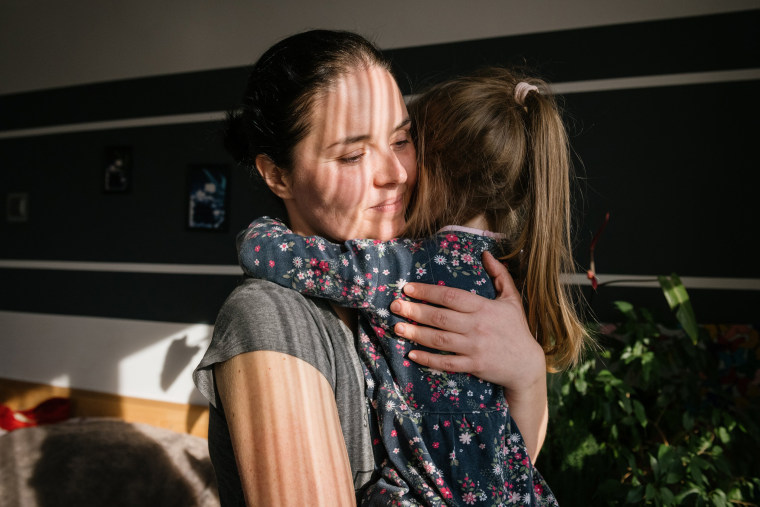WYSZATYCE, Poland — Anna Wislocka is the kind of person who hates to see a guest go hungry. As soon as someone sits down at her wooden kitchen table, she whips out her specialty coffee — with a dash of cinnamon — and a plate of cookies.
It was this impulse that drove Wislocka, a grocery store cashier, to open her home, a light pink five-bedroom house with liberal indoor wood paneling, to several families of Ukrainians: Iryna Morykvas and Oksana Khymych, and their three children.
“I cannot imagine not helping Iryna and Oksana,” Wislocka, 55, said in Polish, putting her hands on her heart as she sat in her sunlit kitchen in Wyszatyce, a tranquil village a few miles from the Ukrainian border. “This is natural to me to react this way.”
Wislocka, whose wide face easily creases with laughter, is one of thousands of Poles who have shown kindness toward Ukrainians fleeing the war next door. Poland, a country of 38 million people, has already taken in nearly 2.6 million Ukrainian refugees, or 60 percent of the total exodus since the Russian invasion began at the end of February, according to the United Nations.
Many Poles have been welcoming Ukrainian families into their homes, gathering donations and volunteering to help the refugees. Despite the millions of individual examples of generosity toward fleeing Ukrainians, concerns are growing that Poland cannot withstand this level of migration.
When NBC News visited Wyszatyce last month, the Ukrainians said they felt at home in Wislocka’s house — cooking and eating together with their host, her husband and her daughter.
“I sometimes feel bad that they are sacrificing their comfort for us,” Morykvas, 36, said in Ukrainian.
Morykvas, a children’s book illustrator, escaped Lviv, a Ukrainian border city 50 miles east of Wyszatyce, with her 10-year-old son, Matvii, last month. They came to Poland with Oksana Khymych their neighbor, and her children, Danyil, 8, and Anna, 3.
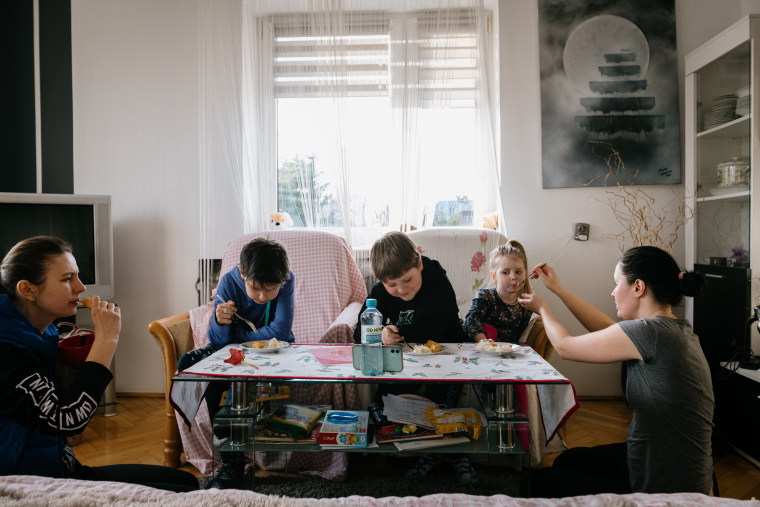
Khymych, 35, showed a reporter around her room on the second floor of Wislocka’s house, which she shares with her two children. It’s right next to the one Morykvas shares with her son.
It’s got everything you need, Khymych said — a TV, a comfortable bed and even a balcony.
“We ended up with really good people,” Khymych, an associate professor of economics at the Lviv Polytechnic National University, said in Ukrainian.
Tomasz Szeleszczuk, a district official in charge of nine villages, including Wyszatyce, said he was proud that his villagers had welcomed Ukrainians.
“Right now we can help them,” Szeleszczuk, 43, said.
But if many more come, the community will need more help from the Polish authorities, he said. Szeleszczuk said that he was worried about the effects the refugee crisis could have on health care and on the economy countrywide.
“It’s a challenge for the whole system,” he said.
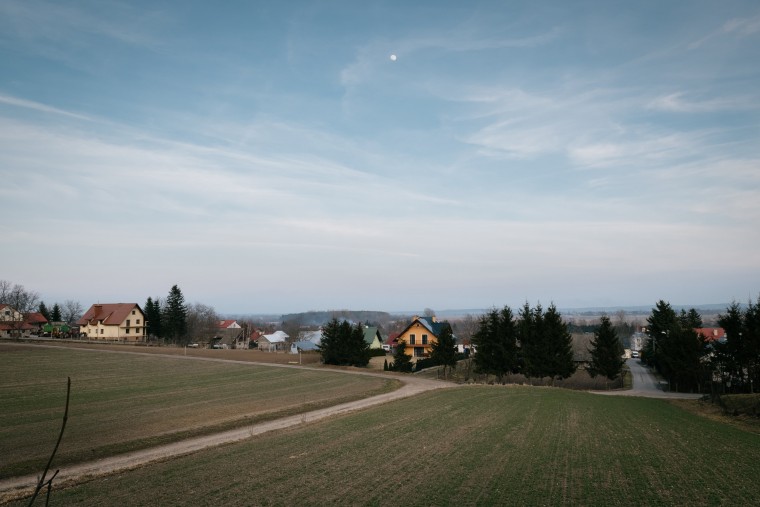
The stream of Ukrainian refugees into Poland has slowed in recent weeks — 28,908 entered on April 9, compared with nearly 141,000 at the peak on March 6, according to the U.N. But many more could come if hostilities in Ukraine escalate.
Speaking alongside President Joe Biden during his visit to Poland last month, Polish President Andrzej Duda warned that if the Russian aggression continues, the numbers of refugees will continue to grow, presenting a “huge challenge” to Poland.
A shared history
While the exodus has been traumatic for the millions of Ukrainians forced from their homes by Russian threats, bullets and bombs, close cultural and historical ties with Poland have made the landing easier for many.
The countries shared periods of both peaceful coexistence and rivalry, said Piotr Kroll, a historian at the University of Warsaw.
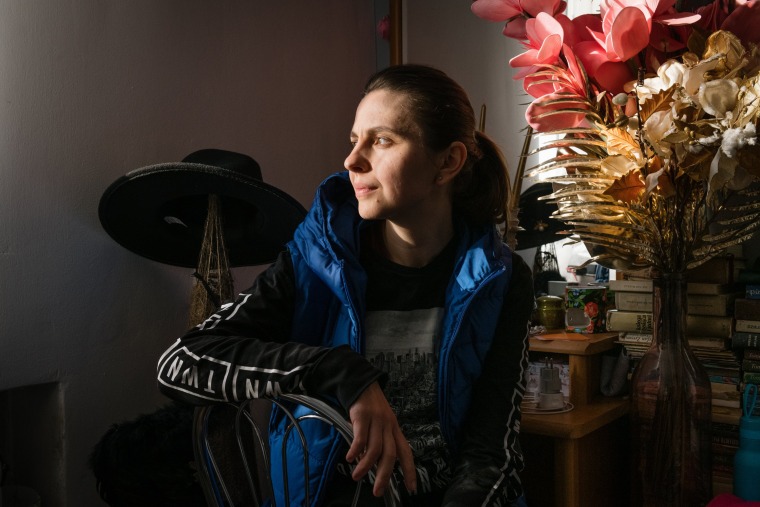
In the 19th century, Ukraine and Poland were under Russian and Austro-Hungarian rule, Kroll said. But both nations strived for independence, he added, which led to conflict when they both claimed the same land, seeing it as part of their state.
“In the 20th century, the Poles made these dreams come true and part of the Ukrainian lands became part of the Polish state,” Kroll said.
Poland has accused Ukrainian nationalists of the ethnic cleansing of Poles during World War II, and in recent years, Warsaw has demanded that Kyiv accept responsibility for the 20th century massacres.
That history has remained an emotional and divisive issue, but after Russia invaded Ukraine in February, many in Poland cast aside historic disagreements, said Iwona Bobko, a museum curator and historian in Przemysl, a border town where many Ukrainian refugees go.
“This is absolutely wonderful to see both nations supporting each other, leaving the painful past behind,” Bobko said.
Anti-immigration rhetoric
Poland’s response to the refugee crisis is all the more remarkable because its right-wing leaders had openly opposed immigration in the past when the immigrants were from a different part of the world and of different ethnicities.
The ruling Law and Justice party rose to power in 2015 thanks in part to its fiercely anti-migrant rhetoric as Europe was dealing with a crisis of refugees from the Middle East after the war in Syria.
Last year, the Polish government was criticized for its treatment of refugees, mostly from Iraq and Afghanistan, on its border with Belarus, pushing them back with water cannons and tear gas.
But the Polish ruling elite changed its tune when it came to Ukrainians.
Duda said last month that Ukrainians fleeing the war were not “refugees” but “our guests, our brothers, our neighbors from Ukraine who today are in a very difficult situation.”
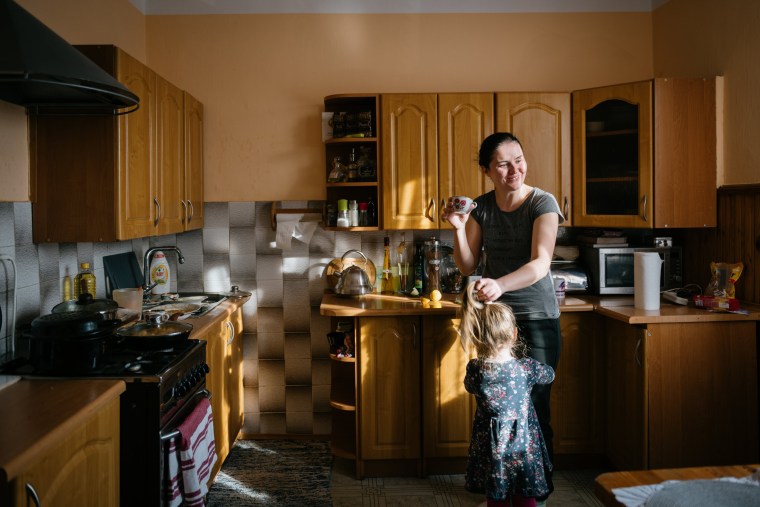
Reflecting in part fears of Russian aggression and attempts at domination, the Polish Parliament on March 12 passed legislation to help Ukrainians arriving in the country by giving them the right to stay in Poland for 18 months and allowing access to the country’s labor market, health care system, social benefits and education.
A spokesperson for the Polish government said in an email last month that Poland must show solidarity with its Ukrainian neighbors “at each and every level.”
Poland has been preparing for weeks to accept Ukrainians, and since the war broke out, it has opened all border crossings to its eastern neighbors, the spokesperson said.
Too much to handle?
But some Polish mayors have already sounded the alarm about their cities’ getting overwhelmed, and residents in Rzeszów, close to the border, also said they had concerns.
Working at a stationery kiosk at Hala Targowa shopping mall in the city center, Anna Slabosz said she feels “misery and despair” when she sees Ukrainian mothers and children arriving in her town, but she is also worried about Poland’s national debt increasing as the country spends millions helping Ukrainian refugees.
“I think that this will affect us, the Polish nation, negatively,” Slabosz, 61, said.
She is also worried about the toll on the health care system.
“We know very well what our health care system is like,” Slabosz said. “It cannot handle us, the Polish people, so what about these extra refugees?”
Volunteers handing out free food to Ukrainians arriving at Rzeszów’s central train station were also wondering how long the effort could go on.
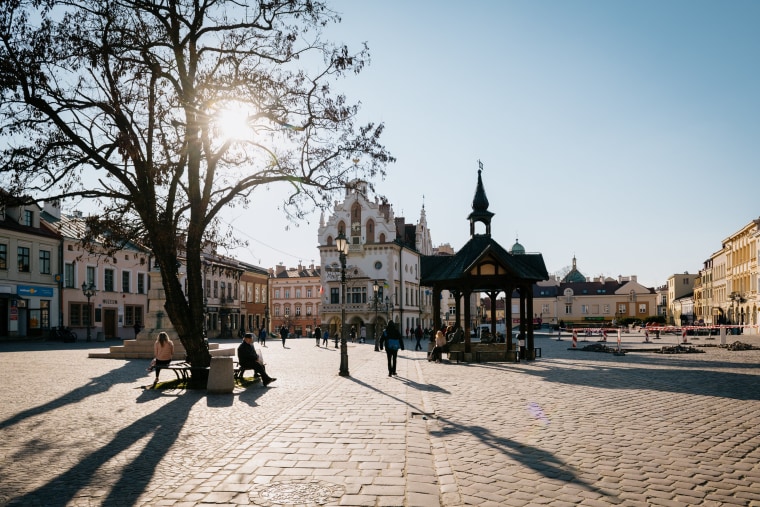
Katarzyna Dybas broke down in tears talking about residents dropping off food and supplies for the refugees and the emotional toll it’s taking on everyone.
“The refugees cry and we cry,” Dybas, 34, said.
Her fellow volunteer, Magdalena Rokita, was worried that the city was already running out of housing to accommodate the new arrivals.
“At some point, such a situation could distort the balance in the region,” Rokita, 58, said. “This balloon will eventually burst.”
